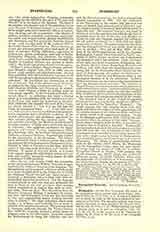

Evangelist. —In the New Testament this word, in its substantive form, occurs only three times: Acts, xxi, 8; Eph., iv, 11; II Tim., iv, 5. It seems to indicate not so much an order in the early ecclesiastical hierarchy as a function. The Apostles, indeed, were evangelists, inasmuch as they preached the Gospel (Acts, viii, 25; xiv, 20; I Cor., i, 17); Philip likewise was both a deacon (Acts, vi, 5) and an evangelist (Acts, viii, 4-5; 40; xxi, 8); in like manner was St. Timothy exhorted by St. Paul to do the work of an evangelist (II Tim., iv, 5).
From the various statements contained in the New Testament, we may gather with some probability that evangelists were travelling missionaries, occasionally solemnly set apart, as seems to have been the case with Sts. Paul and Barnabas (Acts, xiii, 1-3), to go about and preach the Gospel, yet sometimes with a settled place of abode, as Philip at Caesarea, and Timothy at Ephesus. They were endowed with a special charisma to preach to those unacquainted with the Christian Faith and pave the way for the more thorough and systematic work of the pastors and teachers. But their office, as such, seems to have extended no further; so, for instance, we understand from Acts, viii, 4 sqq., that Philip, who preached successfully in Samaria and baptized many, was not qualified to impart the Holy Ghost to the converts (verse 14). Accordingly, St. Paul, in his list of the gifts bestowed by Christ for the edification of the Church, Eph., iv, 11 (in I Cor., xii, 28, they are omitted), mentions the evangelists in the third place, only after the Apostles and the Prophets. In the writings of the Apostolic Fathers, no reference is made to evangelists; travelling missionaries are sometimes called “apostles”, sometimes also, as in the Didache, they are styled “teachers”.
In the later ecclesiastical literature the word evangelist, perhaps sporadically still used for some time in its old sense (Euseb., Hist. Eccl., V, x), received, in most parts of the Church, another meaning. Applied occasionally to the reader in the Liturgy (Apost. Const., III), even to the deacon (Lit. of St. John Chrysost., P.G., LXIII, 910), it became gradually confined to the writers of the Four Gospels (Euseb., Hist. Eccl., III, xxxix, etc.). It is exclusively in this sense that common modern parlance employs it.
As early as the second century, Christian writers sought in Ezechiel‘s vision (i, 5 sqq.) and in Apoc. (iv, 6-10) symbolical representations of the Four Evangelists. The system, which finally prevailed in the Latin Church, consisted in symbolizing St. Matthew by a man, St. Mark by a lion, St. Luke by an ox, and St. John by an eagle (see Symbolism). It is fully explained by St. Jerome (In Ezech., i, 7), and had been adopted by St. Ambrose (Expos. Ev. S. Luc., Proem.), St. Gregory the Great (In Ezech., Hom., I, iv, 1), and others. St. Irenaeus, on the one hand, and Augustine, followed by the Venerable Bede, on the other, had devised different combinations. Christian artists followed in the footsteps of the ecclesiastical writers, and made use, in different manners, of the four traditional figures to represent the Evangelists. Among the most remarkable works of this description it will suffice here to mention only the old mosaics of the churches of S. Pudentiana, S. Sabina, S. Maria Maggiore, and S. Paolo fuori le Mura, at Rome.
CHARLES L. SOUVAY

